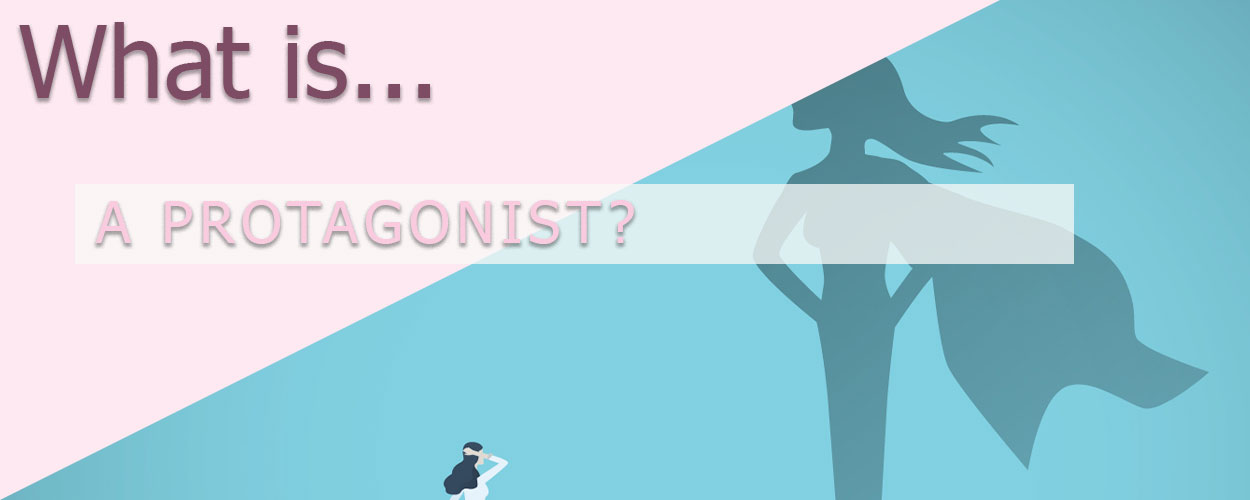

Posted: May 26, 2025
In any story you read or write, there will always be a protagonist. But who are they? What role do they play in a story? How can you write a good protagonist and what do you want to avoid when writing one?
In simple terms, they’re just the character the reader is meant to follow, but when writing, it goes a bit deeper than that. A good protagonist is likable. That means they’re not perfect, but they’re also not overly flawed. They can be someone the reader relates to or feels empathy/sympathy for.
While most of the time, the protagonist is also the main character, there are a few examples in which they are two separate people. What makes a protagonist clear is that they’re the one the story is about. It’s their choices and actions that drive the plot along. For example, in F. Scott Fitzgerald’s The Great Gatsby, the protagonist is Gatsby himself, even though the main character is his neighbour Nick Carraway (who is also the narrator). This is because it’s Gatsby’s actions, hopes, and dreams, that are progressing the plot. Nick is just along for the ride, even though it is his experiences and life that we’re following as he learns more about the self-made millionaire he has for a neighbour.
I’m usually okay with any kind of protagonist, but I’m human like any other reader, so there have been some protagonists that have rubbed me the wrong way. I don’t like when they have too many flaws or too few flaws. I personally think that this is just bad writing. The term for “perfect” characters is “Mary Sue” (or Gary Stu for males). You can apply this term to characters who are too noble, who are too well liked, or who don’t seem to have any flaws whatsoever. Real people are flawed. They have layers. They have depth. They have real conflicts with people. Characters like Bella Swan from Twilight, Rey fromStar Wars, and even Katniss Everdeen from The Hunger Games can be classified as such. Male characters such as James Bond, Harry Potter, and Superman have also been called Mary Sue or Gary Stu characters because of their near-perfect morals, virtues, or other qualities that incite praise.
I don’t think all of these characters are like that, since a few of them contain deeper layers. Harry Potter, for one, even though he is quite noble and generally praised for very little, carries deep-rooted imposter syndrome. He gets angry about things and acts like a teenaged boy in irrational ways. Katniss bases all her actions on saving her sister. She also gets angry about things. She’s great at hunting, yes, but it’s not something that she just has. She’s worked for it, and she’s bad at things that other people need her to be good at, such as talking to crowds, which is why Peeta is such a good foil for her.
That said, characters like Bella Swan, who is described in a way that’s perceived as beautiful, who has all the boys wanting to date her and all the girls wanting to be her, and who is held on an unhealthy pedestal by Edward Cullen—that is a Mary Sue through and through. She’s overall a very bland protagonist as well, which, when she’s the character meant to be moving the plot along, isn’t something you want.
On the flip side, there are characters with too many flaws. Some people call this character an Anti-Sue, and they come with their own host of problems. Characters who are grotesque and can never do anything right also aren’t relatable or sympathetic. Even if your protagonist is the villain of the story (i.e. Coriolanus Snow from The Ballad of Songbirds and Snakes), the reader needs to be able to sympathize with them—or at least understand them. A good protagonist has a mix of likeable and unlikable qualities, neither side outweighing the other. In this case, even if your protagonist is making all of the wrong decisions, you need to explain why they’re making such decisions. Dive deep into their psyche, but don’t just pile woe after woe upon them. (This just makes them pitiable, not relatable or likeable.) Yes, bad things can happen to your protagonist, but there must be a balance between that and with how the protagonist reacts to these bad things.
Sometimes your characters just talk to you. Other times, you need to carefully construct them at the beginning, and they take it from there. First and foremost, what your protagonist needs is a goal, a Desire. They’re the ones driving the story, so what to they want? Is there a job they’re vying for? A love interest? Something exciting like a mystery? Even a villain may want power, prestige, or love. Everything the character does should cycle back to this Desire; every action written with this in mind. From there, everything else follows.
To make it easier, I’ve compiled a short list of reminders I think are important when writing your leading character.
These are just a few things I think are important to remember when writing a protagonist. Don’t forget that protagonists are people too, even if they’re fictional. They drive the story forward, so if the protagonist isn’t good, the story won’t be either.
Top 10 Tips for New Writers
Top 10 Tips for All Writers
Top 10 Tips for Writing Captivating Stories
Writing Good Characters
Writing Compelling Villains
Pixar’s 22 Storytelling Rules
What is Character Building? [writing]
What is Character Development? [writing]
What is a First Draft? [writing]
What is Plot? [writing]
What is an Outline? [writing]
What is a Timeline? [Writing]
What is Beta Reading? [review reading — pre-launch]
Tigerpetal Press is a small book press dedicated to publishing local authors and poets.